| DO's Check the automatic transmission fluid We recommend every 1,000 miles, or when you change your engine oil. Check level, color, and smell. Low levels, dark color, and or a burnt smell, are all signs of trouble. For more on signs of bad fluid click here. Maintain a properly tuned engine Many vehicles utilize the engine's vacuum as well as other sensors, to control transmission shifting and to maintain hydraulic pressure. A properly tuned engine is vital to the performance of the automatic transmission. Maintain the cooling system on a regular basis Excessive heat can cause premature transmission failure. Regular transmission maintenance Follow your manufactures recommended maintenance schedule, or check your vehicles owner manual. Come to a complete stop before changing gears Changing gears while the vehicle is moving is extremely hard on the transmission and will contribute to early transmission failure. Early diagnosis and repair Many minor clutch and transmission problems left unattended, can and usually do, lead to major repairs. | DON'Ts Shift while rocking back and forth when you're stuck This may cause your transmission to operate in excess of 425 degrees. At that operating temperature, you could experience an immediate transmission failure. Overload the vehicle Follow recommended towing and load limits. Heavy loads cause excessive heat and greatly reduce your transmissions life. Drive a vehicle with little or no transmission fluid Spin the tires when turning vehicles with front wheel drive Drive in four wheel drive range on dry pavement (unless vehicle is AWD or automatic 4x4) Drive on spare tires or mismatched tire sizes with front wheel or AWD vehicles for extended periods of time Hesitate to call us if you feel you may have a drive line, 4WD, transmission, or clutch problem! 218-879-1974 |
|
2 Comments
Summer, although it may seem far away, is just around the corner. Cloquet Automotive wants you and your vehicle to be prepared for it. Green grass, sunshine, and cruising with your windows down are just a few of the many perks summer has to offer. Amongst those perks however, a few disadvantages lurk in the midst such as; heat, dust, and stop-and-go traffic. These conditions will, over time, take their toll on your vehicle. Add the effects of this winter we just can't seem to put behind us, and your vehicle could be poised for a breakdown. As much as we would love to be of service to you, we don't want that to happen! Following through on your periodic maintenance can lessen the odds of mechanical failure. This periodic maintenance should help your vehicle to last longer and command a higher resale price, too!
Here are a few tips for you to help keep your vehicle in top performing condition this summer! Some are easy to do; others require a skilled auto technician.
If you already know you have internal transmission failure servicing your transmission will not be of any help. The only way to fix internal transmission failure is to have the unit rebuilt or replaced. Transmission Service Procedure- Remove the fluid from your vehicles unit, remove the transmission pan, replace transmission filter and filter seal (if unit has one), inspect and make any necessary adjustments (throttle pressure or band adjustments where applicable depending on which unit you have), replace pan gasket (unless unit has a reusable pan gasket), re-install transmission pan, and refill unit with fluid.
Transmission Flush- A transmission flush (aka. drain and refill) is the service done when your unit does not have a pan or serviceable filter. Example: A Honda, or other vehicle manufacturers using CVT's (Continuous Variable Transmission). Instead, the unit has a plug located on the bottom designed for draining fluid. Service a CVT requires removal of the plug to drain the fluid, reinstalling the plug, and then refilling the unit with new transmission fluid to its proper level. When should I have a transmission service done? A transmission service is much like having the oil changed in your engine. The service needs to be done according to the service index table for your particular vehicle. Cloquet Automotive suggests having a service done approximately every 50,000 miles. If you have a heavy-duty or severe-duty vehicle we recommend having a service done every 30,000 miles. Why should I have a transmission service done? Having your transmission serviced regularly according to manufacturing service tables will help to keep your transmission running longer. It also reduces the risk of having future transmission problems and/or failures. Following your service maintenance table for your specific vehicle is important, but it is not a guarantee you will not have an internal transmission failure. Transmission Fluid Exchange- A quality transmission fluid exchange is designed to circulate through and replace virtually all existing fluid with new by removing one of the transmission cooler lines and running the transmission cooling system through an external machine with a built in filter. This machine is designed solely for the purpose of draining the current fluid in your unit and replacing the old fluid with new fluid. Cloquet Automotive does not offer this service. Why would I need to do a fluid exchange? A unit where the fluid becomes contaminated would require a fluid exchange service. A few examples; it floods and your vehicle becomes submerged in water, or the wrong transmission fluid was added to your transmission. The suspension in your vehicle, whether car or truck, is an intricately networked series of cooperating parts that are intended to provide an even, stable, and smooth ride. The suspension system in your vehicle takes a considerable amount of road abuse--especially this time of the year in the Northland. I think it's safe to say we've all had an experience where our car or truck slams down into one of the many road craters left behind from a Minnesota snow plow. Many of the suspension system's components will wear out over time, or worse, break as a result of rough wear and tear. You can prevent this outcome from happening to you by simply having regular inspections of your steering and suspension systems. There are also many symptoms of a faulty suspension system, and being aware of common warning signs can save you from having expensive repair costs, not to mention keeping you and your passengers safe when driving in and around the Twin Ports. Some of these warning signs may include:
Cloquet Automotive services for suspension and steering include the following:
Now until April 30th, 2014 receive a discount on Shocks or Struts. Details click here.
CV Shafts and Boots 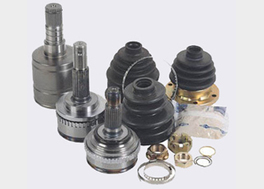 Cloquet Automotive offers complete service for the cv shafts and boots of your vehicle's drivetrain. Our drivetrain specialists recommend that your cv boots are inspected with every oil change as they can easily become torn or cracked. These tears and cracks will allow dirt into the joint and require both boot and and join to be replaced. If you hear a clicking noise while turning your car or truck, or perhaps a clunking noise schedule an appointment today before the problem gets any worse. U-joints and Drive Shafts 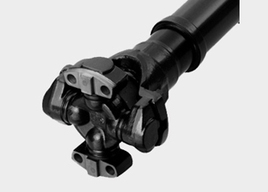 Cloquet Automotive provides u-joint and drive shaft diagnosis and repair services at our transmission shop. We recommend your drive shaft and U-joints be inspected regularly for optimal performance of your vehicle. Trucks and SUVs commonly have drive shaft slip joints requiring lubrication. If you hear a squeaking when you accelerate from a stop or driving you should schedule an appointment at our shop in Cloquet as bad U-joints can actually result in your drive shaft to seperate from the vehicle. Transfer Case 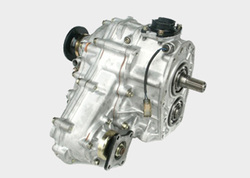 Cloquet Automotive provides diagnosis, service, and repair of the transfer case in both foreign and domestic vehicles. Our drivetrain specialists recommend that you have your transfer case checked whenever you have an oil change to make sure sure it is lubricated correctly to avoid having it need to be rebuilt. The majority of transfer cases require the change of fluid or oil regularly. Schedule an appointment today and let one of our specialists inspect your transfer case today. Cloquet Automotive provides a wide range of repair services for both import and domestic automotive brake systems. Every auto technician at our shop in Cloquet, Minnesota, knows it is important that you understand how the brake system in your car or truck plays a vital role in keeping you, and your passengers, safe. The components in the automotive brake system are not designed to last for the life of your vehicle and are bound to wear out over time as you drive around. The brake pads (aka brake shoes) are the most common brake replacement service we do here at Cloquet Automotive. This is because every time you depress your brake pedal the brake pad strikes against the brake rotor (aka drum) causing the material to wear down over time. If the brake pads are allowed to wear down for too long the underlying metal surface of the pads will contact your brakes' metal rotors. This is when most will start to hear a grinding or high pitch screech when your brake pedal is applied. Ignoring your brakes at this point will not only result in an unsafe situation, and can result in additional service to your vehicles brake system which will most likely increase your brake repair cost.
Our auto mechanics stress to our customers that knowing when to have the brake system in your car or truck serviced is vital in order to keep brake service and repair costs to a minimum. Simply, being aware of the warning signs of potential brake failure can save you money on costly brake repair expenses for your particular vehicle. Your very own senses of hearing, touch, and sight can be of a substantial assistance to you. Some common indications of brake problems may include:
Our mechanics at Cloquet Automotive are trained and certified to service all types of front and rear brake systems. When bringing your vehicle in for a brake service or repair one of our trained auto technicians will provide you with a thorough brake inspection to make certain both your front and rear brakes are working properly. Additionally, we can provide you with a brake problem diagnosis that will give you service options and a brake repair cost estimate. Our mechanics specialize in everything from:
So, the next time you have a brake system issue, give us a call (218-879-1974) and let our trained team of automotive brake professionals service your vehicles brake system. We will be sure to get you back on the road quickly, and you will leave here knowing you received the best quality service for the best price the twin ports area has to offer. Here are some gas saving tips from the pros at the National Institute for Automotive Service Excellence (ASE).
Monitor tires. Under inflated tires or poorly aligned wheels waste fuel by forcing the engine to work harder. (Let the tires cool down before checking the air pressure.) Out-of-line wheels, as evidenced by uneven tread wear, should be aligned by a professional. Remove excess weight. Remove unnecessary items from the vehicle. Store only essentials in the trunk. Less weight means better mileage. Consolidate trips and errands. Some trips may be unnecessary. Also, try to travel when traffic is light so you can avoid stop-and-go conditions. Avoid excessive idling. Shut off the engine while waiting for friends and family. Observe speed limits. Speeding decreases your miles per gallon. Drive gently. Sudden accelerations guzzle gas. Anticipate traffic patterns ahead and adjust your speed gradually. Use windows and air conditioning wisely. Your mileage should improve if you keep the windows closed at highway speeds, since air drag is reduced. This is true even with the air conditioning on-assuming that the system is in good working order. But turn the air conditioning off in stop-and-go traffic to save fuel. Keep your engine "tuned up." A well-maintained engine operates at peak efficiency, maximizing gas mileage. Follow the service schedules listed in the owner's manual. Replace filters and fluids as recommended; have engine performance problems (rough idling, poor acceleration, etc.) corrected at a repair facility. Given today's high-tech engines, it's wise to have this type of work done by auto technicians who are ASE certified in engine performance. These conservation tips will not only save gasoline, they'll help extend the life of your vehicle. Win-win, indeed. My check engine light turned on. What does that mean?On some cars it’s called a Check Engine light; others use a Service Engine Soon light. Still others just have a light with a picture of an engine on it. The industry calls it a MIL — Malfunction Indicator Lamp. All these names are scary names for the same thing… which actually, is something that most of the time is not very scary at all. Basically, the light means that the car’s computer has identified a problem in the system that needs attention, but what kind of attention? Your vehicle needs professional attention, from a professional technician. It needs to have the computer system scanned and checked to identify any areas that have shifted outside of the normal operating range. It may sound confusing, but in reality that light is just the computer’s way of telling you to have your car checked. It found a problem — often one that you wouldn't even notice during normal driving — and it needs to be checked before it becomes serious. When you bring your vehicle to Cloquet Automotive we will first scan your vehicle for codes that may be causing the light to turn on. Once we know the code we can then continue to run a diagnostics test to determine the specific problem. A diagnostics test is any kind of test performed to aid in the diagnosis or detection of a specific problem or symptom. Diagnostics is a part of the automotive industry that continues to grow daily. Vehicles continue to become more electronic and complex and soon it will be impossible to work on a vehicle without a proper scan diagnostics tool. What Kind of Scan Tool Do We Use?Cloquet Automotive uses the VERUS PRO D10 Your car's transmission is the most complicated and least understood major component in your car or truck. In today’s cars, the transmission is a combination of sophisticated hydraulics and computer-controlled electronic components.
No one component in your car has more going on inside than your automatic transmission. The transmission is a mechanical component designed to transmit power from a vehicle’s engine to the drive axle, which makes the wheels drive the vehicle. By varying the gear ratio, the transmission alters the levels of power and speed to the wheels. For example, in low ranges, the transmission provides more power and less speed; in high ranges, just the opposite is true. This reduces the load on the engine, while increasing the vehicle’s speed and fuel economy. Some vehicles use a clutch to connect and disconnect the transmission to the engine, controlled through a foot pedal next to the brake pedal. These vehicles have a manualtransmission. If your car doesn’t have a clutch pedal, it has an automatic transmission. If you have to press a clutch pedal and shift the transmission manually, your car has a manual transmission. Automatic transmissions depend on a special fluid — called ATF — to cool and lubricate the moving parts inside. But the fluid does more than that: In fact, it’s no exaggeration to say that the fluid actually drives the vehicle. So there’s little doubt that the fluid is very important to the transmission’s operation. This is why it’s important to check the transmission fluid level and condition regularly (check your owner's manual) and to have your transmission serviced at least every couple years. Later model front wheel drive cars also incorporate another major component into the body of the transmission itself: the differential or final drive. These types of transmissions are known as transaxles. Many cars today have the final drive incorporated in the transmission, to create a transaxle. Front wheel drive configuration improves fuel economy and handling, and reduces manufacturing costs. But because of the additional components in the transaxle, it’s generally more expensive to repair than a transmission when it fails. You never know where you’ll be when a crisis occurs, so keep a box of supplies in the trunk of your car to sustain your family if stranded on the road.
|
Cloquet AutomotiveTransmission Specialist for over 30 years! Categories
All
Archives
July 2017
|

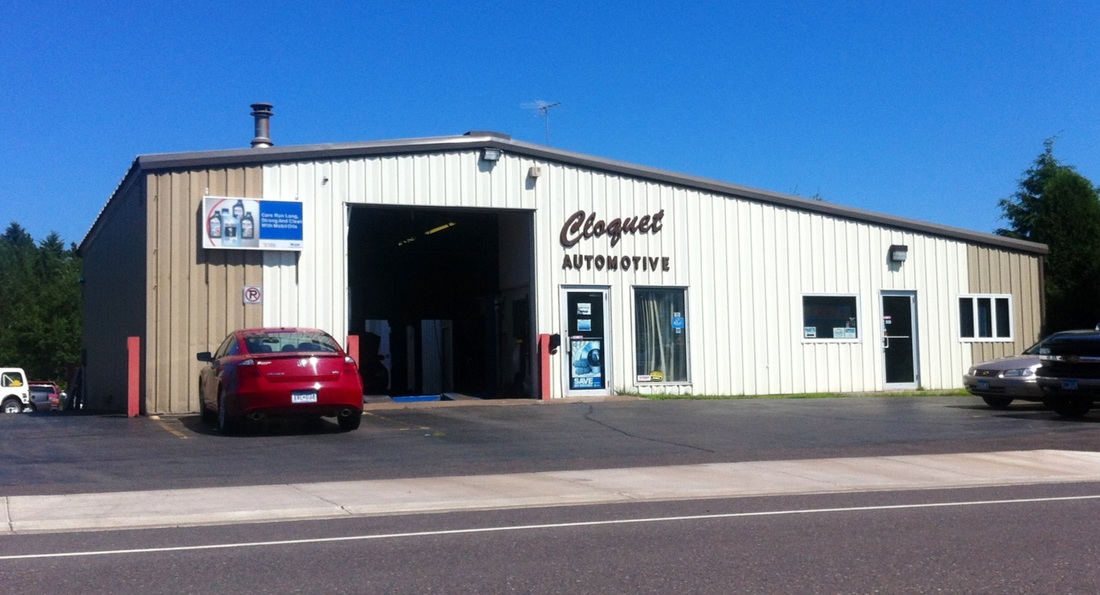
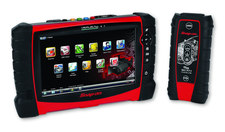
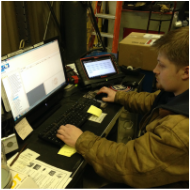
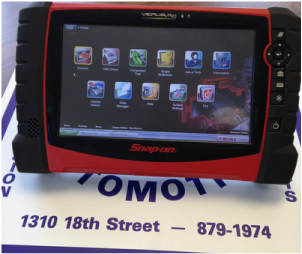

 RSS Feed
RSS Feed